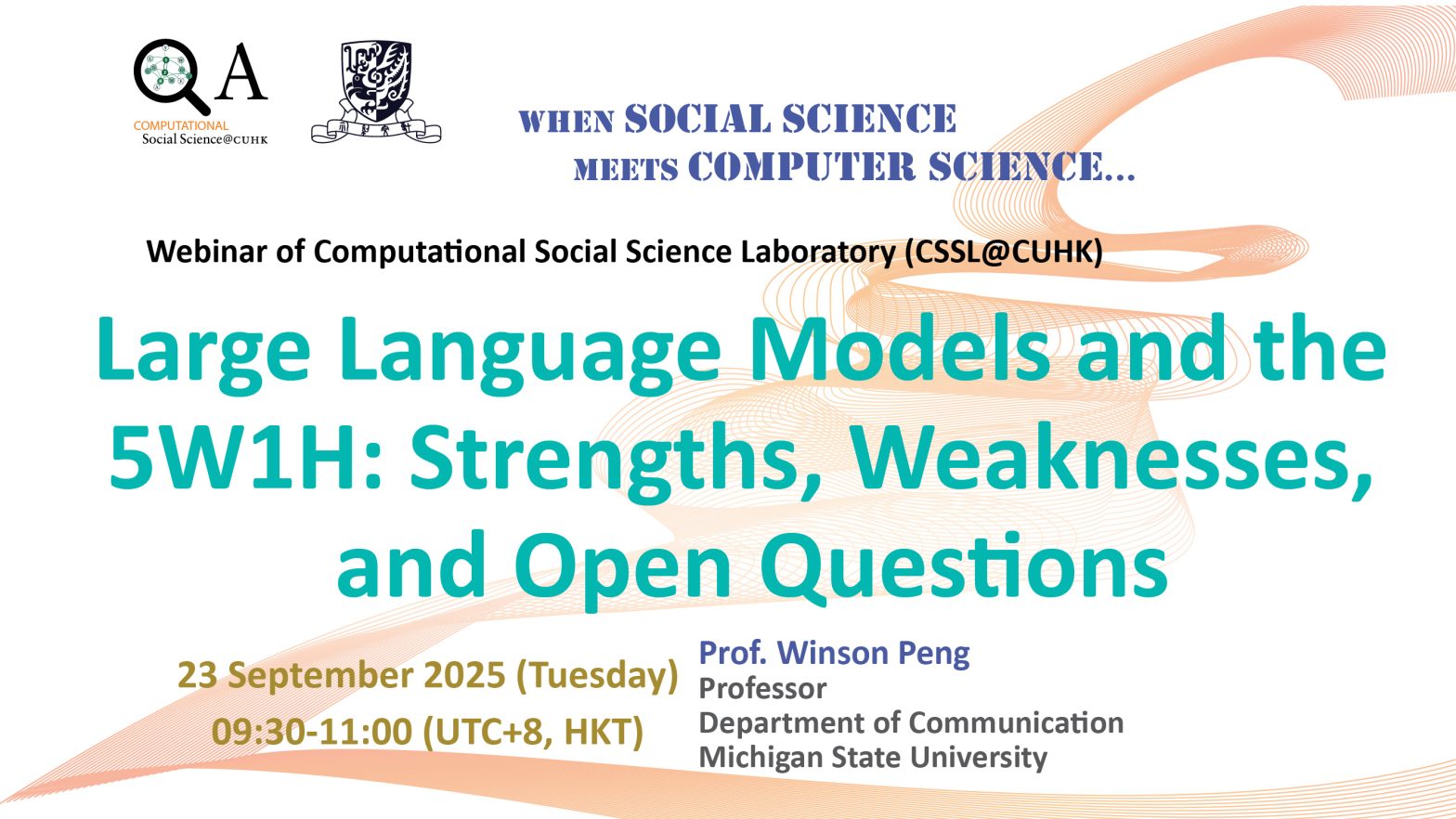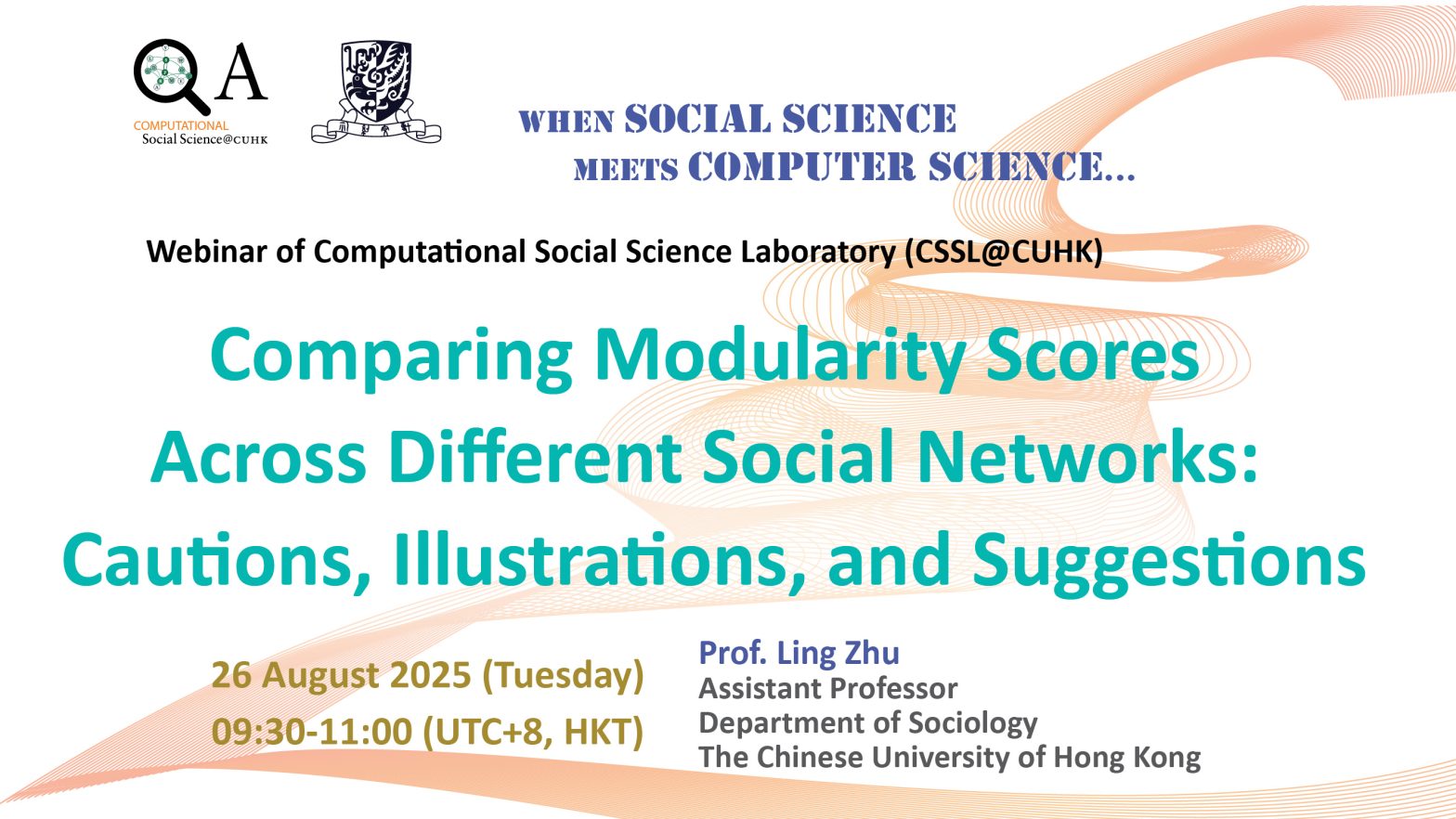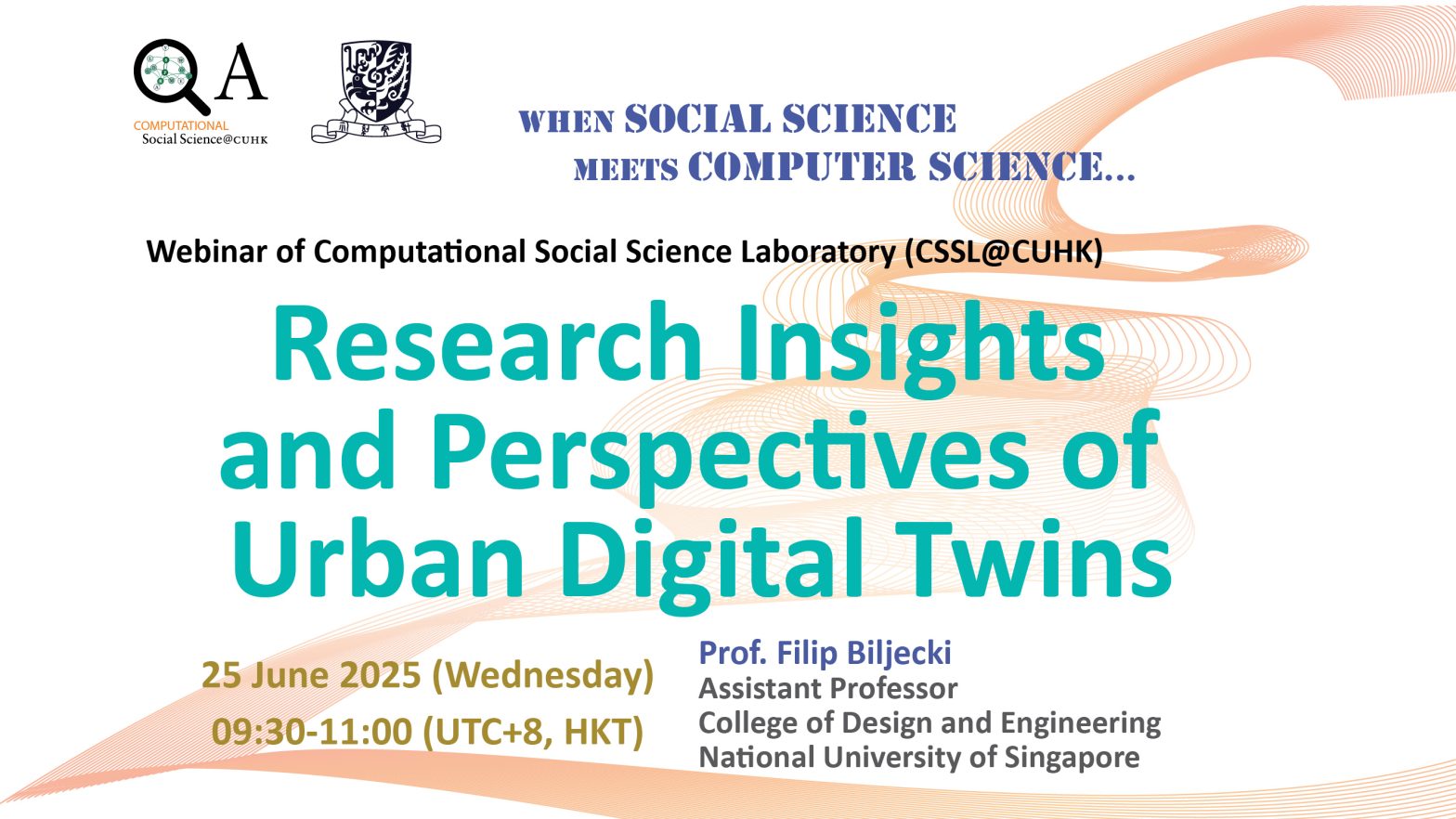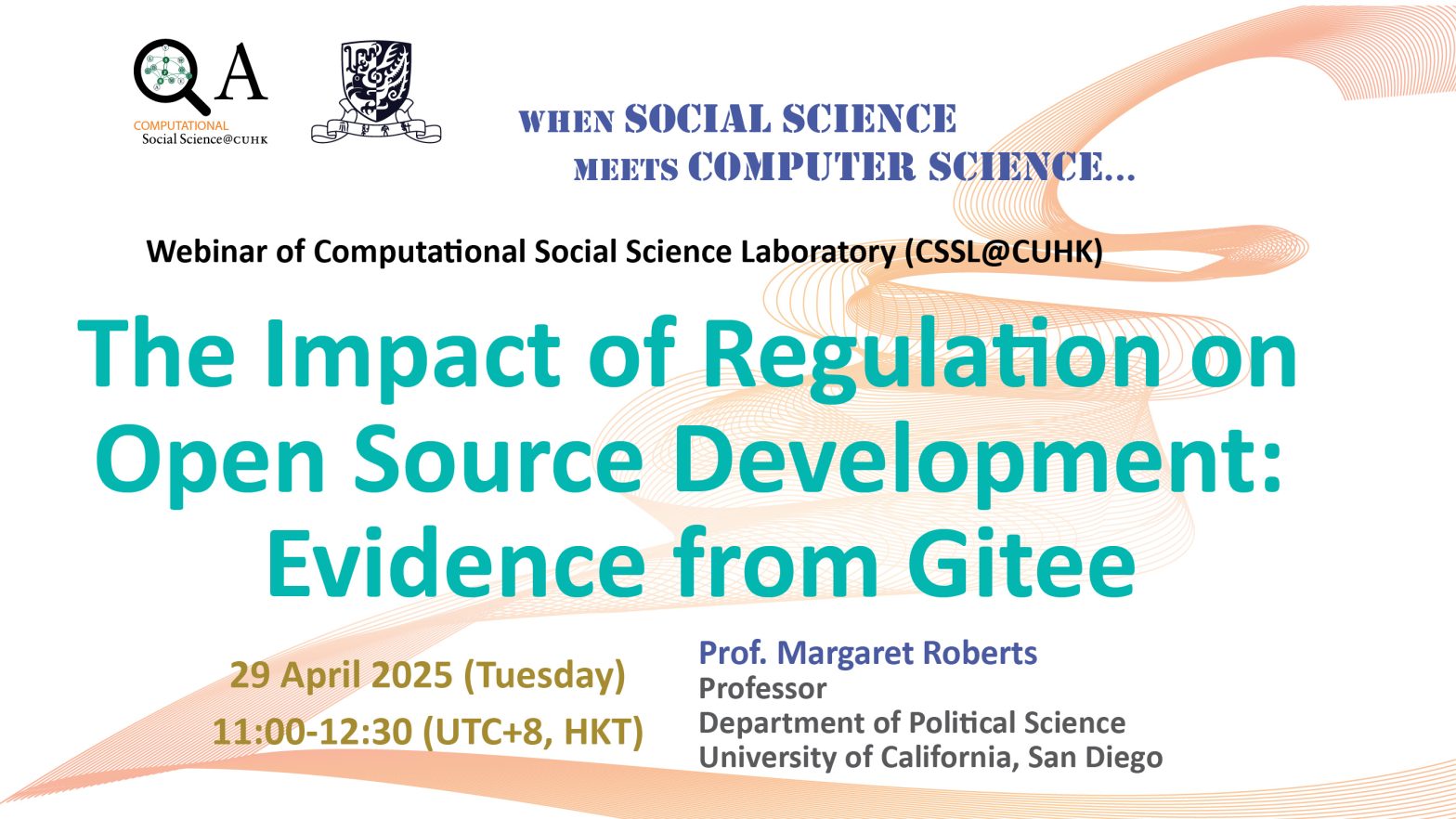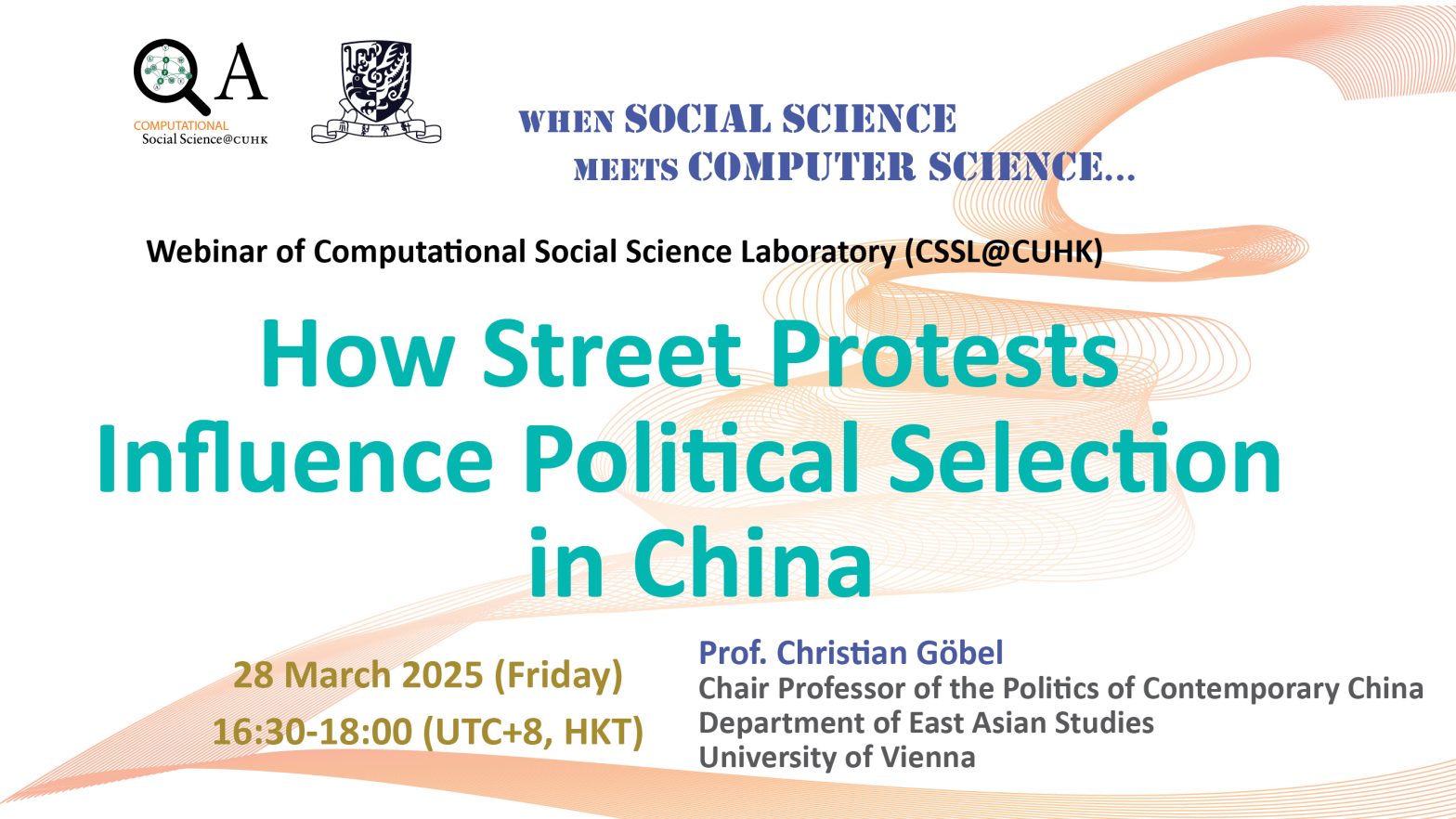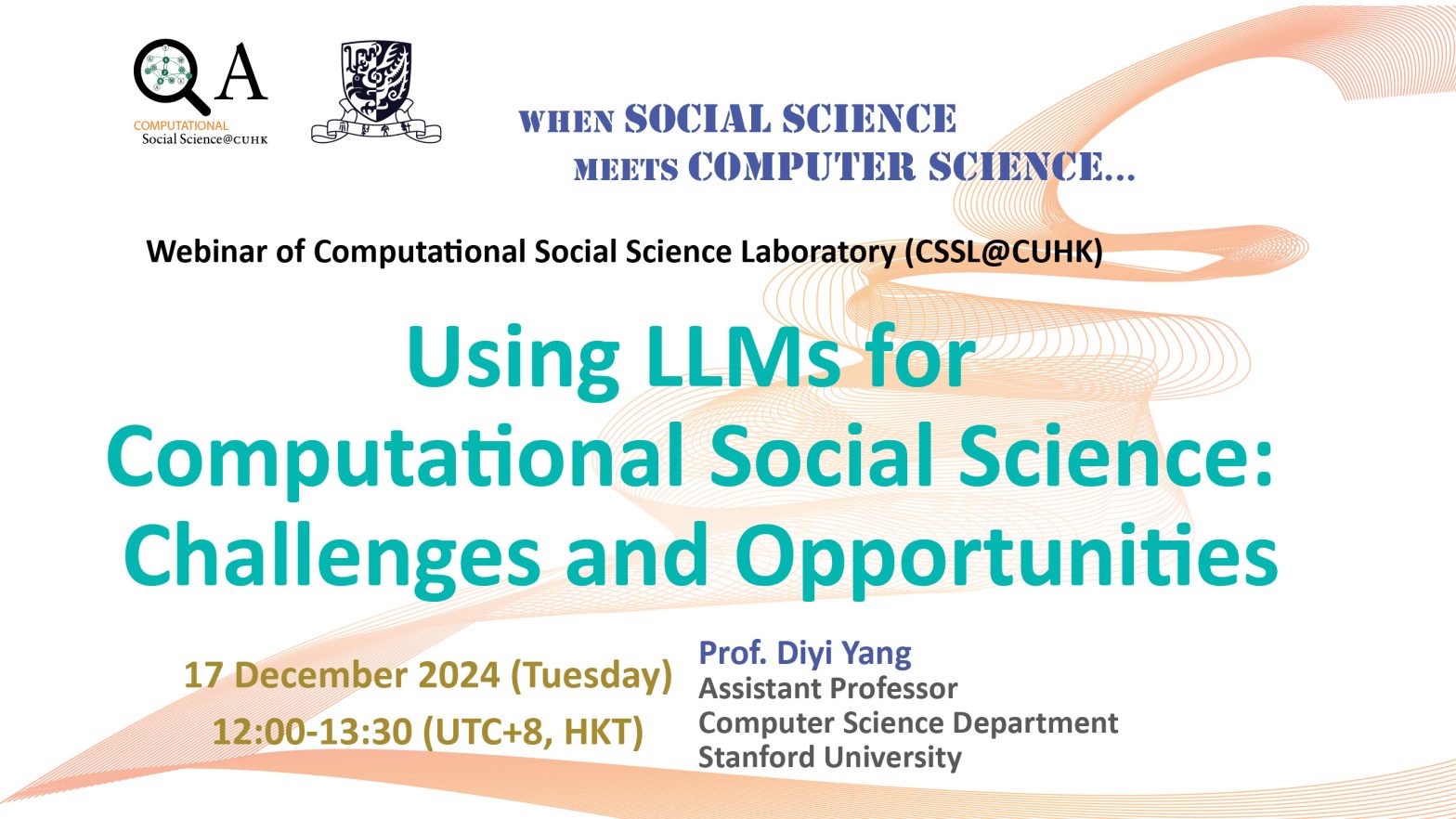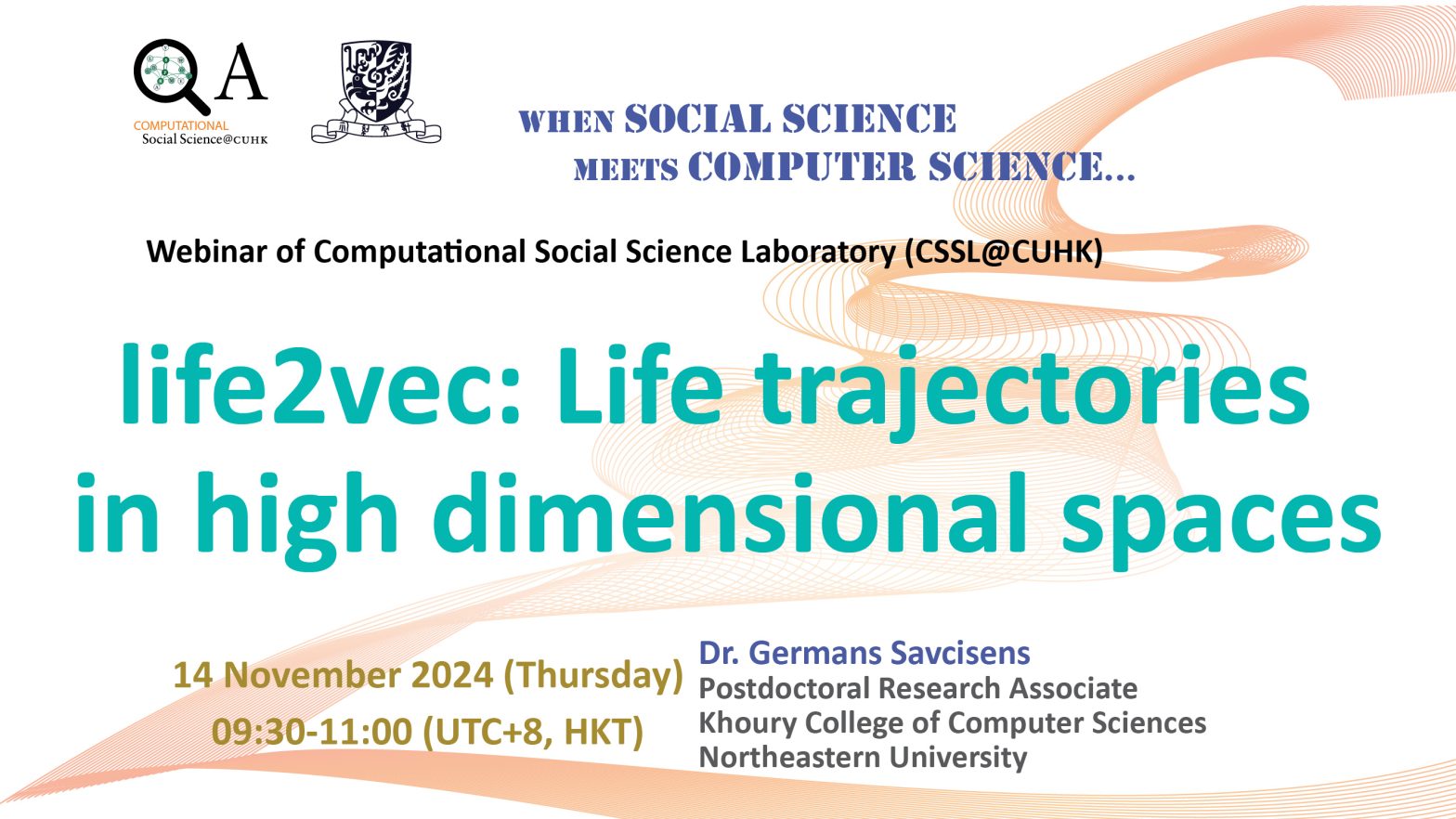Abstract: This talk probes the role of luck in the determination of success in the life course. We ask whether when people get lucky the trajectory of their life success increasingly diverges from that of their unlucky counterpart. We study this question theoretically using basic models of positive feedback. Empirically we look at the lives… Continue reading Luck and Success in Millions of Life Courses
Category: Monthly Webinars
Large Language Models and the 5W1H: Strengths, Weaknesses, and Open Questions
Abstract: Large language models (LLMs) are increasingly employed in social science research as tools for analyzing text, generating insights, and assisting with theory development. Yet their contributions remain uneven, with strengths in some domains and significant limitations in others. This talk evaluates LLMs’ potential and constraints through the classic “5W1H” framework: What, Who, Whom, Where,… Continue reading Large Language Models and the 5W1H: Strengths, Weaknesses, and Open Questions
Comparing Modularity Scores Across Different Social Networks: Cautions, Illustrations, and Suggestions
Abstract: In the thriving field of network studies, there has been a recently emerging practice of comparing the optimal modularity scores across different social networks to evaluate the variation of network-module-related substantive concepts, such as the levels of consensus, polarization, or community boundary rigidity. Although the rationale for this practice is comprehensible, we caution that it suffers… Continue reading Comparing Modularity Scores Across Different Social Networks: Cautions, Illustrations, and Suggestions
Research Insights and Perspectives of Urban Digital Twins
Abstract: The talk will present recent research efforts on urban and geospatial modelling at the NUS Urban Analytics Lab, in particular focusing on urban digital twins. The Lab spearheads a holistic and intertwined research agenda that covers the entire geospatial process in the urban sphere: from advancing means to acquire data and assess its quality… Continue reading Research Insights and Perspectives of Urban Digital Twins
The Impact of Regulation on Open Source Development: Evidence from Gitee
Abstract: Open-source software transcends national boundaries, enabling collaboration among developers in universities, companies, and governments worldwide and contributes significantly to global economic activity. However, governments are increasingly exerting regulatory control over this global public good. In this paper, we examine the impact of one of these efforts – censorship on Gitee, a China-based code collaboration… Continue reading The Impact of Regulation on Open Source Development: Evidence from Gitee
How Street Protests Influence Political Selection in China
Abstract: How does recurring social unrest influence political selection within China’s authoritarian regime? While past research has highlighted the role of loyalty and economic performance in career advancement, the influence of social unrest remains largely unexplored. Drawing on two original datasets of 130,279 protest events and 55,069 career trajectory records of prefectural leaders from 2012… Continue reading How Street Protests Influence Political Selection in China
AI as Humans? Using LLMs to Synthesize Human Responses in Persuasive Contexts
Abstract: Generative AI and LLMs are not only enhancing the efficiency of communication research; they are fundamentally reshaping how scholars observe and understand the intricacies of human communication processes and effects. By automating tasks that once required extensive human efforts such as experimental design and data annotation, LLMs provide new ways to approach complex communication… Continue reading AI as Humans? Using LLMs to Synthesize Human Responses in Persuasive Contexts
Explaining the Evolution of Gossip
Abstract: Gossip, the exchange of personal information about absent third parties, is ubiquitous in human societies. However, the evolution of gossip remains a puzzle. The current article proposes an evolutionary cycle of gossip and uses an agent-based evolutionary game-theoretic model to assess it. We argue that the evolution of gossip is the joint consequence of… Continue reading Explaining the Evolution of Gossip
Using LLMs for Computational Social Science: Challenges and Opportunities
Abstract: Large language models (LLMs) have created unprecedented opportunities for analyzing and generating language data on a massive scale, which has the potential to transform the field of social sciences since language data play a central role in all areas. In this talk, we present a road map for using LLMs as computational social science… Continue reading Using LLMs for Computational Social Science: Challenges and Opportunities
life2vec: Life trajectories in high dimensional spaces
Abstract: Here we represent human lives in a way that shares structural similarity to language, and we exploit this similarity to adapt natural language processing techniques to examine the evolution and predictability of human lives based on detailed event sequences. We do this by drawing on a comprehensive registry dataset, which is available for Denmark… Continue reading life2vec: Life trajectories in high dimensional spaces


